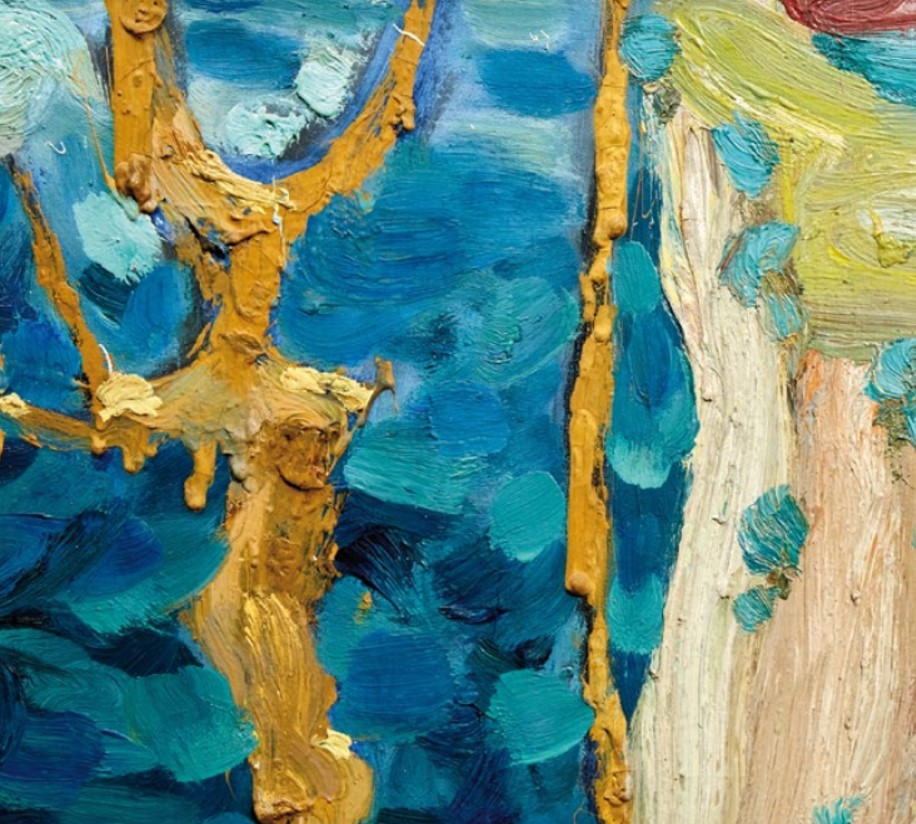Art
Global Art Market Bounces Back From Pandemic, Online Share Squeezed

The report showed how the global art market has recovered since the pandemic years. Among the details is how in-person events regained ground, squeezing online auction sales to some extent.
The global art market exceeded pre-pandemic levels in 2022,
logging 3 per cent year-on-year growth in global art sales
reaching an estimated $67.8 billion, according to an annual study
by Art Basel and
UBS.
The sharpest bounce-back in the art market happened in the US,
with the UK in second place, overtaking China (a country that
only started to come out of tough anti-pandemic measures last
year).
The fine art market is often a barometer for how willing high net
worth individuals are to spend money. At times, it is also
seen as a way of hedging inflation risks – a topical point
with price pressures running high.
The seventh edition of The Art Basel and UBS Global Art
Market Report is written by cultural economist Dr Clare
McAndrew, founder of Arts Economics, and published by Art
Basel and UBS.
Looking ahead, 77 per cent of high net worth
collectors surveyed by Art Economics and UBS in
2022 were positive about the outlook for the global art
market, and a majority (55 per cent) plans to buy art in
2023.
“The global art market proved its resilience. In the context of
the global economy, 2023 will be a year of inflections as we
navigate turning points for inflation, interest rates, economic
growth, and financial markets all up against a complex global
geopolitical backdrop,” Paul Donovan, chief economist at UBS
Global Wealth Management, said.
US lead
The US market retained its leading position in the global art
market with its share of sales by value increasing by 2 per cent
year-on-year to 45 per cent. The UK market moved back into the
second place with 18 per cent of sales, followed by the Chinese
market, whose share fell by 3 per cent to 17 per cent. The US has
seen one of the most robust recoveries from the pandemic of all
the major art markets, with sales recording an 8 per
cent uplift year-on-year to their highest-ever level of
$30.2 billion.
The UK recorded a rise to $11.9 billion, up 5 per cent from 2021
but below the pre-pandemic level in 2019 of $12.2 billion.
After a strong recovery in 2021, mainland China and Hong Kong
reported a “challenging year” in 2022 with a steep decline in
sales of 14 per cent year-on-year, the report said. At $11.2
billion, sales in the region were still 13 per cent above 2020,
but at their second-lowest level since 2009.
Sales channels
Dealer sales reached an estimated $37.2 billion in 2022, a 7 per
cent increase year-on-year, restoring the market to its value
before the pandemic in 2019. Surveys of the sector revealed that
dealers with the highest turnovers of over $10 million saw some
of the largest increases in average sales (at 19 per cent).
There were “strong sales” in the auction sector last year.
However, away from headlines sales figures, momentum was “much
more subdued,” the report said. Total sales conducted by
auction houses, including both public and private sales, were
estimated to be down by 2 per cent at $30.6 billion from $31.2
billion in 2021, but still 11 per cent higher than
pre-pandemic 2019.
In 2022, fairs ran on much fuller schedules as market conditions
normalised. Collectors began to reengage with live events, and
galleries returned to exhibiting at the same number of fairs as
they had in 2019 on average. Sales at art fairs rose from 27 per
cent of total dealers’ sales in 2021 to 35 per cent in 2022,
though still below pre-pandemic levels (42 per cent in 2019).
Online sales lose after pandemic
The report noted that as the event-driven market resumed its more
regular schedule in 2022, both dealers and auction houses
reported a further reduction in the share of their sales
accounted for by e-commerce in 2022. Following two years of
unprecedented growth, online-only sales fell to $11 billion in
2022, a 17 per cent decline year-on-year from their peak of $13.3
billion in 2021, although still 85 per cent higher than in
2019.
Among other details, the report said that having a low share of
representation of female artists correlated with lower
year-on-year sales growth performance for galleries, while those
with a share of over 80 per cent had higher than average growth
of 21 per cent.